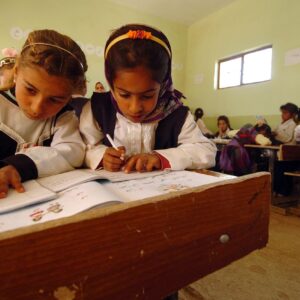In the ever-evolving educational landscape, schools are no longer just centers for academic instruction; they have transformed into holistic knowledge hubs. These institutions play a pivotal role in shaping students into well-rounded adults by providing a multifaceted education that extends beyond textbooks. By integrating emotional intelligence, practical skills, and global awareness, schools are at the forefront of preparing the youth for the challenges of tomorrow.
Comprehensive Curriculum: Beyond Academic Excellence
The modern educational framework in India emphasizes a balanced curriculum that integrates both academic rigor and life skills. According to a recent study by the Educational Policy Institute, students who engage in a curriculum that balances traditional subjects with life skills exhibit a 30% higher rate of academic success compared to those who follow a strictly traditional curriculum.
Schools are increasingly incorporating courses on financial literacy, environmental science, and health and wellness, recognizing the importance of these subjects in today’s world. For instance, programs like the CBSE’s ‘Art Integration’ mandate not only enhance creativity but also improve cognitive abilities, illustrating the shift towards a more inclusive educational approach.
Emotional and Social Learning: Essential for Modern Education
Emotional intelligence (EQ) and social skills are critical components of student development, often predicting future success more accurately than IQ. A report by the Collaborative for Academic, Social, and Emotional Learning (CASEL) suggests that schools that integrate SEL into their curriculum see an improvement in overall student performance by up to 11 percentile points. Indian schools are adopting frameworks that incorporate SEL, aiming to develop empathy, resilience, and teamwork in students.
These programs equip students with the ability to navigate the social complexities of the workplace and personal relationships, fostering individuals who are not only academically proficient but also emotionally intelligent.
Global Citizenship: Educating the Next Generation of World Leaders
As globalization connects diverse cultures, the importance of raising global citizens cannot be overstated. Educational programs that include multicultural studies, foreign languages, and international exchange opportunities are becoming standard. Data from the Global Education Monitoring Report by UNESCO indicates that students who participate in international programs or global studies are 50% more likely to exhibit tolerance and understanding of different cultures.
Schools serving as global knowledge hubs prepare students to thrive in a multicultural world, promoting peace and understanding across borders.
Technology Integration: Preparing for a Digital Future
With the digital age in full swing, technological proficiency is more than a skill—it’s a necessity. Indian schools are integrating technology at a rapid pace, with the government’s push towards digital education under initiatives like ‘Digital India’ leading to a 70% increase in digital literacy among students over the past five years, as per the Ministry of Education.
From smart classrooms to AI-based learning tools, technology in education enhances interactive learning and provides students with the skills needed in today’s tech-driven job market.
Conclusion: Schools as Catalysts for Comprehensive Development
The transformation of schools into knowledge hubs is crucial for developing well-rounded adults who are prepared to face the demands of the modern world. By focusing on a holistic education model, schools not only enhance academic learning but also instill the necessary skills and values in students. As these institutions evolve, they continue to play a vital role in shaping the future of our society, ensuring that the next generation is well-equipped to contribute positively in various spheres of life.













